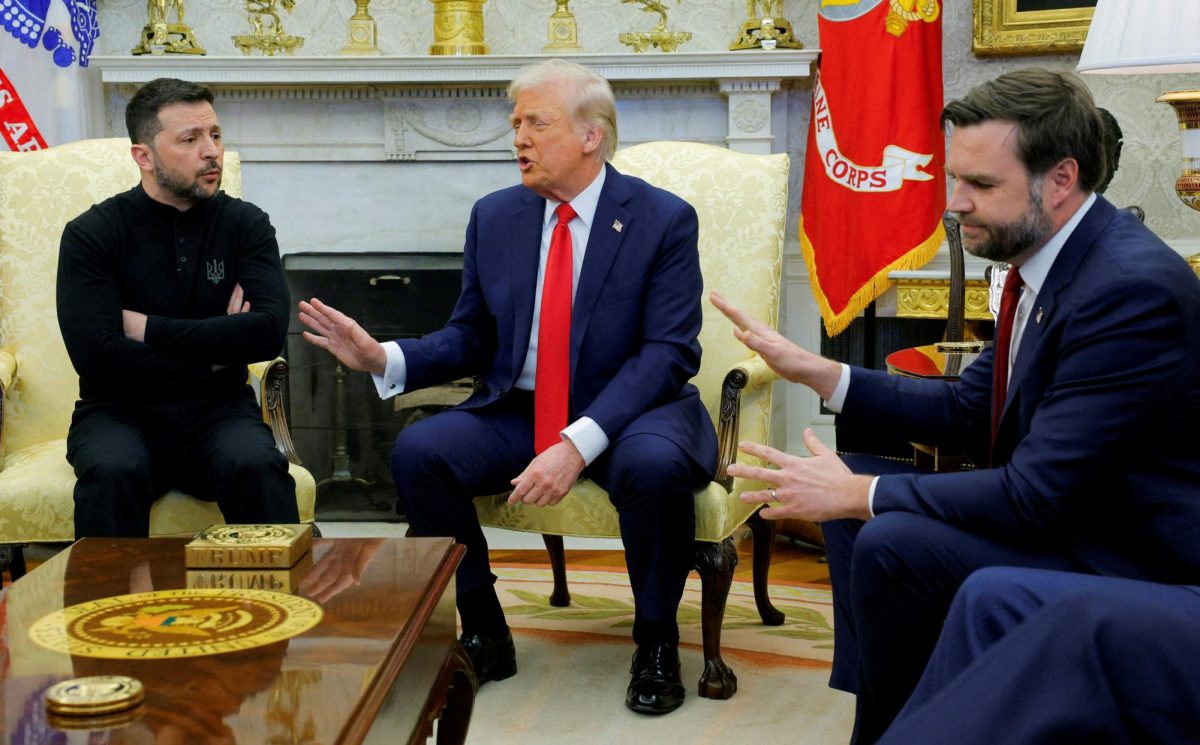In 2009, while former President Barack Obama gave a speech on health care to Congress, Republican Rep. Joe Wilson stood up and shouted, “You lie!” After a moment of shocked silence, the chamber erupted with boos. Behind Obama, former Speaker of the House Nancy Pelosi appeared shocked, while former Vice President Joe Biden shook his head in disbelief.
Today, such a blatantly distasteful interruption by another politician at a formal political address is normal and alarmingly frequent, even enabled by the president himself. This appears to reflect a broader trend: our elected officials just seem to be getting ruder.
Decorum — proper and polite behavior — has long been understood as a marker of a strong, respectable politician, ensuring trust in their ability to lead. It’s natural for constituents to want their elected officials to keep a level head, choose their words carefully and put their best foot forward — people wish to empower those who they admire, who they want to emulate. Therefore, it is puzzling, to say the least, to see so many brazen politicians in the United States government.
It’s not as though dramatic, disrespectful and even violent actions haven’t been performed by politicians in the past; they just seemed rarer. Looking back at history, we can point to events such as the caning of Massachusetts Senator Charles Sumner by South Carolina’s Representative Preston Brooks in 1856. Angered by Sumner’s passionate anti-slavery speech, which had targeted congressional Democrats — the political parties had not yet switched — Brooks entered the Senate Chamber and ruthlessly beat Sumner with his cane. Afterwards, Brooks left the building without resistance from any of the onlookers, becoming a hero for the Southern pro-slavery cause.
Although there hasn’t been a recent moment of physical violence between politicians, verbal altercations and outbursts seem to be a dime a dozen in the past few years. They aren’t just occurring within standard meetings of the House and Senate, or even at presidential addresses to Congress; we are seeing this unbecoming behavior during interactions between the world’s top leaders.
In an Oval Office meeting with Ukrainian President Volodymyr Zelenskyy Feb. 28, both President Trump and Vice President JD Vance publicly berated the visiting leader. What began as a cordial conversation quickly turned sour after Zelenskyy pointed out how President of Russia Vladimir Putin did not engage in diplomacy, as Vance had previously suggested. The next ten minutes were shocking to say the least: Trump and Vance became increasingly agitated, speaking over, interrupting and belittling Zelenskyy, who looked incredibly uncomfortable.
As expected, the meeting generated a massive global response, with dozens of countries expressing their support for Ukraine and their disdain for Trump and Vance’s actions. Democratic politicians joined in on this critique, but most of their Republican counterparts did not — in fact, many praised the way in which the meeting was conducted, seeing Trump and Vance as defenders of the American people.
These reactions reflect two key phenomena: decorum has truly become obsolete in the American political tradition, and people want to keep it that way. Indeed, Trump’s unfiltered, easily-provoked and snide personality was attractive to millions of voters in November — and to other politicians, who felt emboldened by his conduct.
Being rude and explosive, rather than composed and thoughtful, is increasingly becoming a mark of strength amongst American political leadership. Impulsivity brings about nothing positive, progressive or beneficial for the people whom politicians are meant to serve: it creates conditions that often cannot be reversed. Discourtesy is destructive, and we cannot ignore its consequences.


